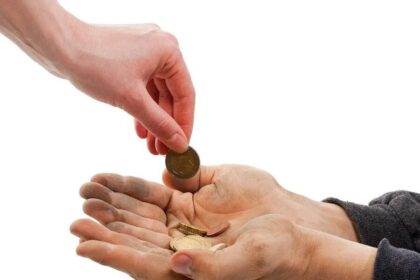Failure as the Hidden Ingredient of Success
Entrepreneurship is often romanticized as a straight path from idea to success. In reality, many of the wealthiest founders built their fortunes not despite failure, but because of it. Their early stumbles provided the resilience, insights, and grit that later fueled billion-dollar companies.
A 2023 CB Insights report found that 70% of startups fail within the first 20 months yet failure doesn’t have to be the end. For some, it’s the ultimate classroom.

Elon Musk: From Exploding Rockets to SpaceX Dominance
Before SpaceX became a household name, Musk faced repeated rocket failures that nearly bankrupted him. Between 2006 and 2008, three SpaceX launches failed, exhausting funds and investor confidence. Musk later admitted he was days away from shutting down.
The fourth rocket finally succeeded, attracting NASA contracts and reviving the company. Today, SpaceX is valued at over $150 billion.
Lesson: Perseverance in the face of repeated technical failure can transform an industry.

Arianna Huffington: 36 Book Rejections Before Media Glory
Before building The Huffington Post into a global media powerhouse, Arianna Huffington faced rejection. Her second book proposal was turned down 36 times by publishers. Rather than quitting, she pushed forward, eventually building a media empire acquired by AOL for $315 million in 2011.
Lesson: Rejection is data, not destiny. Persistence creates opportunities.
Jack Ma: Countless Rejections Before Alibaba
Jack Ma’s story is legendary in China: he was rejected from Harvard 10 times and denied jobs at dozens of companies, including KFC. Yet in 1999, he founded Alibaba, which became one of the world’s largest e-commerce platforms.
By 2020, Alibaba’s market cap soared past $700 billion, cementing Ma as one of the richest self-made entrepreneurs.
Lesson: Being told “no” can prepare you to build something no one else believes in.

Oprah Winfrey: Fired Before Becoming a Media Mogul
Early in her career, Oprah was fired from her TV reporter job because producers said she was “unfit for television.” Instead of quitting, she turned to daytime talk, eventually creating The Oprah Winfrey Show, which ran for 25 years and built her billion-dollar brand.
Lesson: Career setbacks can redirect you toward your true strengths.

Steve Jobs: Fired From Apple Before Returning to Save It
In 1985, Steve Jobs was forced out of Apple, the company he co-founded. He described it as “devastating,” but it pushed him to create NeXT and Pixar. When Apple acquired NeXT in 1997, Jobs returned, transforming Apple into the world’s most valuable company.
Lesson: Sometimes failure at your own company can set the stage for your greatest comeback.

Conclusion: Failure Is the Price of Billion-Dollar Success
The richest founders in the world didn’t avoid failure they embraced it, learned from it, and used it as fuel for reinvention. Whether it was Musk’s exploding rockets, Huffington’s rejections, or Jobs’ ousting, these stories prove that failure isn’t the opposite of success it’s part of the journey.
For today’s entrepreneurs, the takeaway is clear: failure is not final. With resilience, adaptability, and vision, it can become the foundation of extraordinary wealth.
FAQs
1. Do most successful founders experience failure first?
Yes, research shows many leading entrepreneurs had failed ventures before breakthrough success.
2. What’s the biggest lesson from founder failures?
Resilience—using setbacks as learning experiences rather than endpoints.
3. How do investors view entrepreneurs with failed ventures?
Often positively, if the founder demonstrates they learned and applied those lessons.
4. Which founder had the biggest comeback story?
Steve Jobs’ return to Apple is widely considered the most iconic business comeback.
5. Can failure actually increase the chances of success?
Yes. Studies suggest entrepreneurs with one failed startup are more likely to succeed in their next venture than first-timers.






